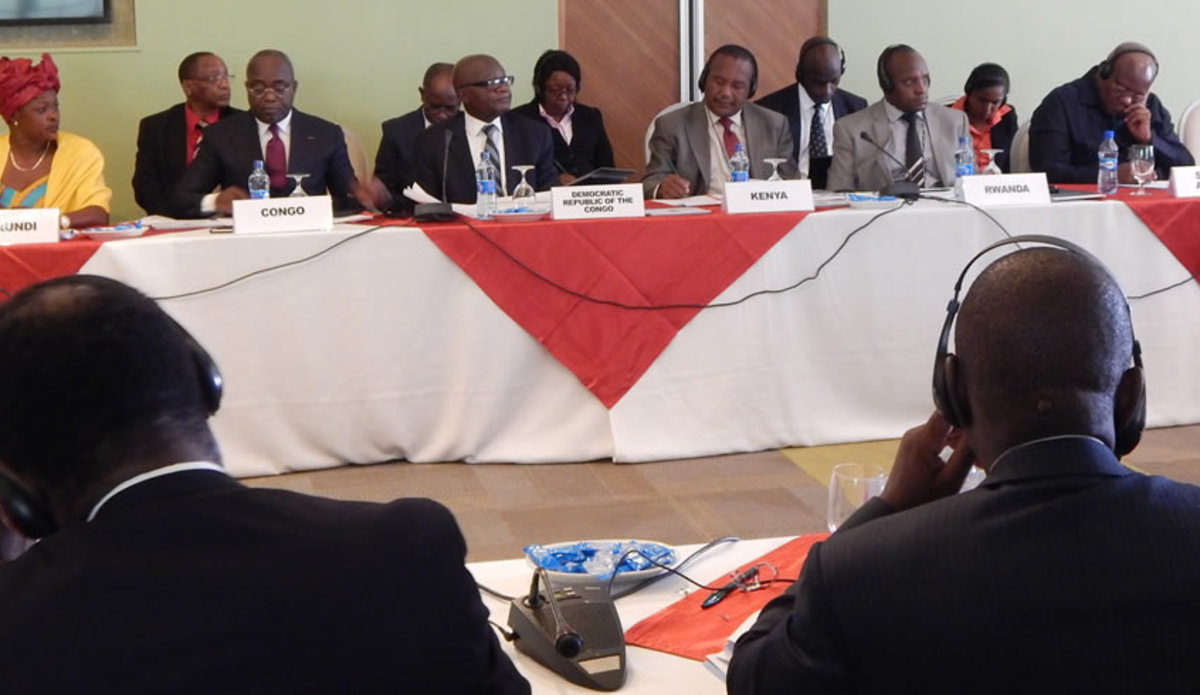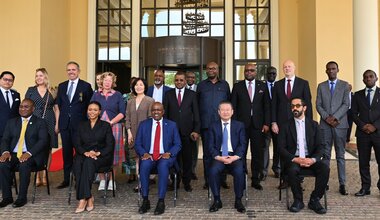The leaders of Africa’s Great Lakes meet in Nairobi, make fresh proposals to tackle security threats in the region
Nairobi (Kenya), 10 February 2017 – Representatives of the signatory countries of the Peace, Security and Cooperation (PSC) Framework agreement for the Democratic Republic of Congo (DRC) and the region organized on 9-10 February 2017 in Nairobi the 16th meeting of the Technical Support Committee. The Technical Support Committee is an advisory mechanism comprising senior government officials from the 13 signatory countries of the PSC Framework, namely the Democratic Republic of the Congo, Angola, Burundi, the Central African Republic, the Republic of Congo, Kenya, Rwanda, South Africa, South Sudan, Sudan, Tanzania, Uganda and Zambia.
The Technical Support Committee meeting is expected to make recommendations to advance the implementation of the core objectives of the Framework which include: the neutralization of armed groups in eastern Democratic Republic of Congo; tackling the illegal exploitation of natural resources; addressing impunity and promoting judicial cooperation; finding durable solutions for refugees and internally displaced people (IDPs); supporting Women and Youth empowerment; and promoting regional integration, economic development and governance.
Following renewed fighting in South Sudan in July 2016, hundreds of fighters of the Sudan People’s Liberation Movement/Army-In Opposition (SPLM/A-IO) crossed into eastern DRC. The United Nations Stabilization Mission in the DRC (MONUSCO) established their number at 752. Since then, the United Nations Special Envoy for the Great Lakes region, Said Djinnit, the Special Representative of the Secretary-General for the Democratic Republic of the Congo, Maman Sidikou, and the Deputy Special Representative of the Secretary-General for the DRC, Mamadou Diallo, have undertaken multiple consultations with Congolese and South Sudanese authorities to address the issue.
In addition, the continued atrocities committed in eastern DRC by the Allied Democratic Forces (ADF), the Democratic Forces for the Liberation of Rwanda (FDLR), and recent reports on the incursion of ex-M23 elements from neighboring Uganda into Congolese territory remain a cause of concern for the countries of the region and the international community.
In light of these developments that threaten to further destabilize the region, the Technical Support Committee proposed in its deliberations the establishment of a Regional Task Force responsible to bring together all concerned stakeholders, along with national and regional mechanisms, to make recommendations for durable solutions to the region’s instability.
More specifically, the newly-formed Task Force will:
- Carry out assessment field visits to engage relevant stakeholders and gather information and records on each of the disarmed combatants cantoned in the camps;
- Make recommendations to the disarmament, demobilization, reintegration, repatriation and resettlement of the disarmed combatants;
- Make recommendations for bilateral and/or multilateral legal frameworks between the concerned countries to build confidence amongst respective governments and disarmed combatants that all repatriation activities will be carried out in compliance with international law and subject to sufficient safeguards and monitoring mechanisms;
- Ensure a follow-up on the implementation of the recommendations once endorsed by the leaders of the region.
The Regional Task Force comprises the governments of the DRC, Burundi, Rwanda, Uganda, South Sudan, as well as the United Nations, African Union, the International Conference on the Great Lakes Region (ICGLR), the Southern African Development Community (SADC), and local community leaders.
 UN
UN





